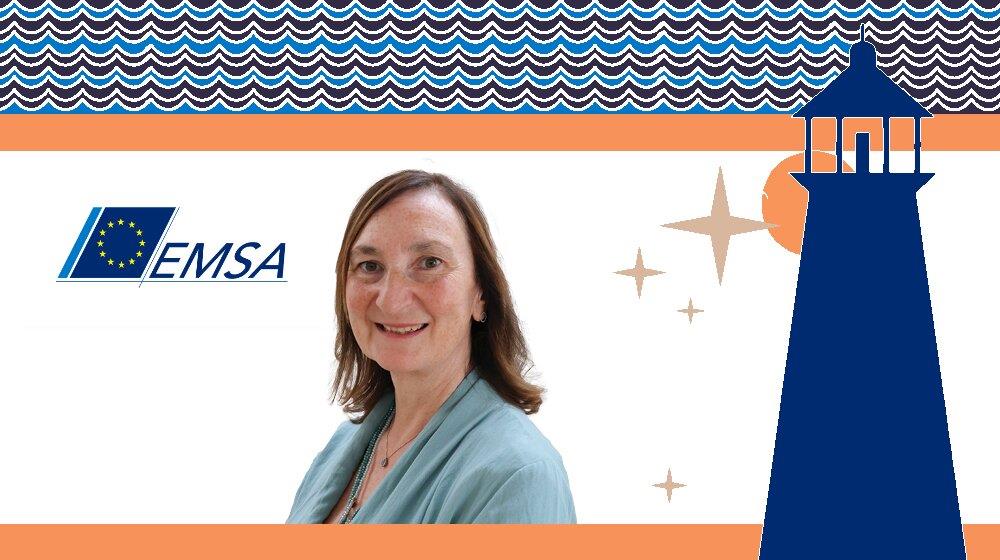According to Manuela Tomassini, Head of Sustainability and Technical Assistance at the European Maritime Safety Agency (EMSA) and one of the speakers at Maritime Cyprus 2023, shipping is on the verge of a historical energy transition.
However, the effort to construct a green and sustainable maritime ecosystem will not be a walk in the park, but rather a difficult and shared responsibility that will demand sacrifices and actions from all maritime stakeholders.
In view of efforts to boost renewable and low-carbon maritime fuels, more vessels are being built or converted to run on liquefied natural gas and biofuel, while testing is underway on a range of alternative fuels. How is the European maritime industry dealing with these developments?
Shipping is on the verge of a historical energy transition. In the EU there is increasingly stricter air emissions and climate legislation, such as the extension of the ETS to maritime transport and the FuelEU Maritime Regulation that is acting as an accelerator. At an international level, the 2023 IMO Strategy on reducing GHG emissions from ships has also raised the level of ambition. A stable legal framework and technical standards in place are important building blocks in support of these developments. In this context, the European maritime industry is adapting quickly. The transformation will be structural, deep, and thorough. Commitment and engagement will be needed at all levels and from all stakeholders. The process has started, with the push from first movers, and various options are being tested, from the use of sustainable biofuels to low and zero-carbon fuels, wind-assisted propulsion, or energy-saving technologies and electricity. Several development projects that are upgrading and enhancing the port infrastructure and pushing for the efficient use of energy are ongoing. Action is needed here and now to make the European maritime industry future-proof.
What opportunities will be created for the industry by the push for alternative fuels?
The green transition will generate opportunities for all stakeholders: shipyards, equipment manufacturers, fuel producers, finance, ports, shipping companies, and logistics operators. Innovation can result in a clear competitive advantage. We should also refer to the “human element”. New skills and abilities will be needed both onboard and ashore and new professions will materialise. Environmental compliance will be a must for shipping companies and new technologies will be in use, for which competences will need to be upscaled and adapted. The green and digital transition will open an ocean of opportunities in terms of jobs; it could attract young people to maritime and be an enabler of greater diversity and gender balance. The complexity of the issues at stake will require cooperation and partnerships within the supply chain. It will be a strong push for dialogue and cooperation, as is currently the case for the creation of green shipping corridors.
Against a backdrop of increasing environmental regulation, the search for alternative energy sources and new emission guidelines, what is your forecast as regards long-term investment in the shipping sector?
Substantial investments are needed in support of the green transition of shipping, both for onboard technologies for ships and onshore infrastructure for the production and bunkering of alternative fuels. As a result of the extension of the ETS to Maritime and the FuelEU Maritime Regulation in the EU, shipping companies need to plan and assess their specific business case so as to make the necessary timely investments. There will not be a “one-size-fits-all” solution. There are alternatives that are much more suitable for near-coastal voyages (like full electric ships), options more suitable for the existing fleet (like biofuels for their drop-in nature), and alternatives that offer immediate a zero or a near-zero carbon solution. The lifecycle GHG footprint will also need to be in the picture, as formalised at IMO with the recent adoption of the “Guidelines on Life Cycle GHG Intensity of Marine Fuels”. Finally, safety should always be in the picture. At EMSA, we are looking into the potential of different alternative sources of power in a comprehensive way through a series of studies that we hope can help the shipping sector to navigate this complex exercise.
Are European ports ready and equipped with the necessary tools and infrastructure to assist sustainable ships and practices?
Ports are a crucial piece of the puzzle. Investment strategies and forward-looking planning are needed to ensure adequate infrastructure in support of this global shipping revolution. A green future is a shared responsibility. Different projects are already materialising and green port initiatives are being implemented across Europe. Rethinking through innovation and digitalisation may put European ports at the forefront of this “race” and result in a competitive advantage. In the EU, the legislative framework is once again accompanying these efforts by stimulating supply and demand. For instance, the FuelEU Maritime Regulation will create the demand in relation to onshore power supply: ports receiving at least 50 port calls of passenger vessels or 100 port calls by container vessels will need to provide shore-side electricity for such vessels by 2030. The timeframe is very challenging, aligned with very high expectations. Proactivity and vision will be the recipe for success in this historical transition, together with cooperation and collaboration among stakeholders.
This interview first appeared in the September edition of GOLD magazine. Click here to view it.









